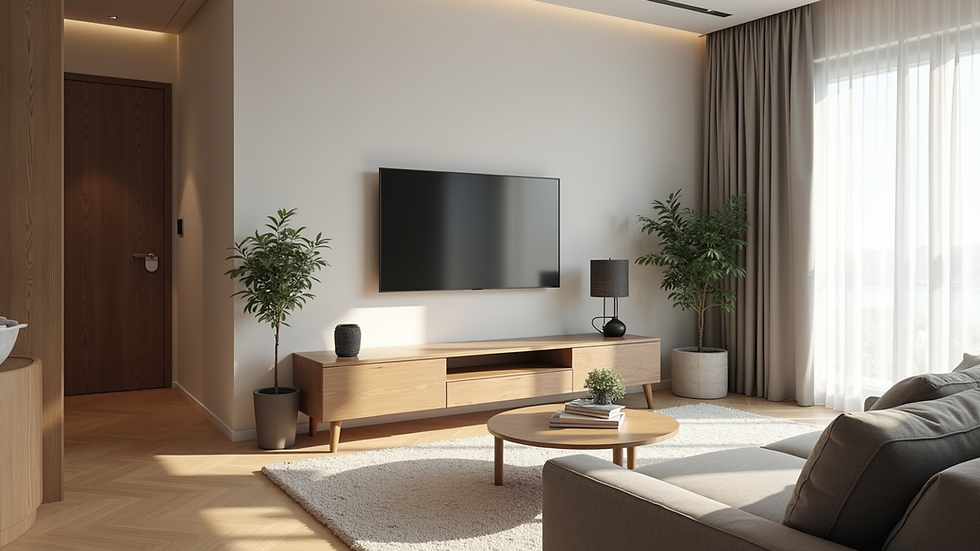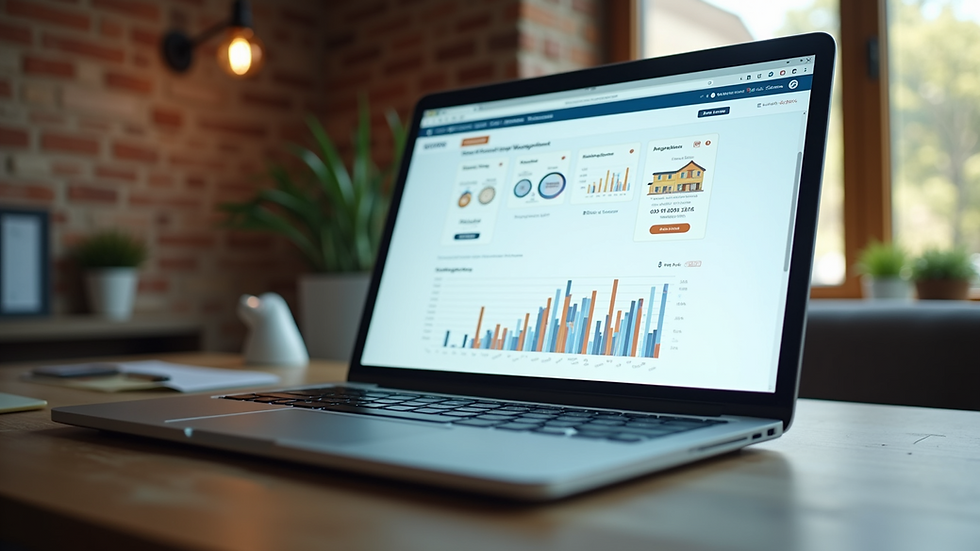How to Build Great Landlord-Tenant Relationships (Without Being a Push-Over)
- domodomu
- May 29, 2025
- 4 min read
Creating a successful rental experience hinges on a healthy relationship between landlords and tenants. This relationship isn’t just about practicalities; it significantly affects the comfort and satisfaction of both parties. Crafting a positive connection can lead to fewer disputes, lower vacancy rates, and a harmonious living environment. In this guide, we will discuss effective strategies to strengthen landlord-tenant relationships while maintaining necessary boundaries.
Understanding the Importance of Strong Relationships
The landlord-tenant relationship is often seen as adversarial, but it doesn't have to be that way. A strong partnership can lead to open communication and trust, improving the rental experience for everyone involved.
A survey from the National Apartment Association indicates that satisfied tenants are 15% more likely to renew their leases and recommend properties to friends. Taking the time to cultivate a good relationship not only enhances tenant satisfaction but also boosts a landlord's reputation, which leads to fewer vacancies.
Communicate Openly and Regularly
Build Trust Through Communication
Open and regular communication is crucial for a positive relationship. By providing tenants with updates, landlords can prevent misunderstandings and ensure everyone feels connected.
Utilize a mix of texts, emails, and even occasional face-to-face meetings to keep in touch. For example, if you send out monthly maintenance updates or reminders about upcoming inspections, it shows tenants you’re invested in their experience.
Establish Clear Communication Protocols
Landlords should specify how tenants can reach them for maintenance requests or concerns. For instance, if emails are preferred for urgent issues, make it clear from the start. If you choose to avoid communication after hours, outline these boundaries. This will not only streamline inquiries but also help build trust.
Set Clear Expectations
Create Comprehensive Lease Agreements
A well-structured lease agreement is a cornerstone of a solid landlord-tenant relationship. This document should detail the rights and responsibilities of both parties. Key components to include are:
Rent payment schedules: Specify due dates and accepted payment methods.
Maintenance responsibilities: Clearly define who is responsible for what repairs.
Rules about property use: State any restrictions, such as a no-pet policy or limits on noise levels.
By customizing the lease agreement to align with specific property needs, landlords can clarify roles and prevent future conflicts.
Discuss Expectations Upfront
During the lease signing, have an open discussion about expectations. Landlords should express their requirements for upkeep and noise, while tenants should voice their needs regarding repairs and communication. Setting clear expectations from the beginning leads to a smoother rental experience.
Respect Boundaries
Maintain Professionalism
While it’s important to build a positive rapport, maintaining professionalism is equally essential. Tenants need to feel they have privacy in their rented space. Avoid unnecessary visits unless pre-arranged for maintenance or inspections.
For example, if you have an upcoming property inspection, send tenants a reminder at least 48 hours in advance. This respects their space and helps manage expectations.
Set Boundaries for Communication
While communication is vital, it’s important to establish limits on when and how it occurs. Set reasonable hours for responding to tenant inquiries and encourage tenants to respect these boundaries. This balance fosters respect and prevents both parties from feeling overwhelmed.
Foster a Positive Living Environment
Be Responsive to Maintenance Requests
A key aspect of maintaining a strong landlord-tenant relationship is how promptly you address maintenance requests.
For instance, commit to resolving maintenance issues within 24 to 48 hours. This response time shows you value your tenant’s comfort and wellbeing. Clearly outline how tenants can report issues and offer practical timelines for response.
Encourage Feedback
Inviting tenants to share their feedback can significantly improve the rental experience. Consider implementing a suggestion box or conducting annual surveys to gather insights. This not only demonstrates that you care but also helps identify any patterns or areas needing attention.
Handle Conflicts Calmly
Address Issues Promptly
When conflicts arise, addressing them quickly is essential. Delaying discussions can lead to resentment. Approach the situation with a calm demeanor, focusing on understanding the other party's perspective before proposing solutions.
Stay Professional and Objective
During disputes, it’s vital to remain professional. Concentrate on solving the issue rather than making personal attacks. This constructive approach helps find resolutions without damaging the relationship.
Prepare for Possible Outcomes
Understand that not all conflicts will resolve perfectly. Be prepared for potential outcomes, like mediation or, in some cases, eviction. However, having clear documentation and open lines of communication can help ease these challenging situations.
Demonstrate Appreciation
Show Gratitude
Expressing appreciation can significantly enhance your relationship with tenants. A thank-you note for timely rent payments or property upkeep can go a long way. Small gestures like holiday treats demonstrate that you value your tenants.
Reward Good Behavior
Implementing a reward system for responsible tenants can strengthen the relationship. For example, consider a small rent discount for timely payments or a bonus for referring new tenants. These incentives promote positive behavior and enhance goodwill.
Embrace Technology
Utilize Management Software
Technology can streamline landlord-tenant relationships. Utilizing property management software can automate communication, maintenance requests, and rent payments, reducing friction in your interactions.
This efficiency helps ensure that maintenance issues are managed quickly and communications are timely, making the experience smoother for everyone involved.
Leverage Online Communication Platforms
Tenants increasingly expect instant access to information. Utilizing online platforms that provide access to lease agreements, maintenance records, and other essential documents promotes transparency. This can lead to improved relationships, as tenants feel more involved and informed.
Final Thoughts
Building great landlord-tenant relationships requires proactive communication, clear expectations, and mutual respect for boundaries. It is essential to be approachable while maintaining professionalism to prevent conflicts.
Additionally, leveraging technology and showing appreciation for your tenants can create a positive living environment that benefits all parties. Remember, a harmonious landlord-tenant relationship not only enhances tenant satisfaction but also supports landlords in achieving their business goals.

By following these strategies, landlords can cultivate strong relationships with their tenants while maintaining the necessary boundaries. Each interaction with tenants is a step toward creating a successful rental experience that leaves both parties satisfied. With open communication, established limits, and mutual respect, landlords and tenants can navigate their agreements with confidence and ease.




Comments